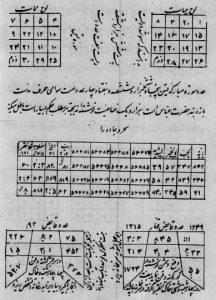
For centuries, the verses of Persia’s great poets have been cherished for their profound symbolism, emotional resonance, and musical cadence.
What appears to be a distant cultural relic is, in fact, a quiet undercurrent shaping the essence of modern spellwork.
Especially in the realms of spellcraft, ritual language, and the symbolism of transformation.
Poets like Rumi, Hafez, and Omar Khayyam did not write incantations, yet their words have become vessels for modern magicians seeking to channel emotion, intention, and transcendence.
In modern magic, language is not merely a tool but a force.
Modern practitioners revive the Persian belief that each stanza holds a fragment of divine essence.
Magicians today often recite lines from Hafez during divination rites, trusting that the ambiguity and beauty of his verses open pathways to hidden truths.
The power lies not in decoding, but in allowing the verse to resonate within the heart until it dissolves illusion.
The Persian concept of fana, or annihilation of the self in divine love, mirrors the magical principle of ego dissolution.
In ceremonial magic, practitioners seek to transcend the boundaries of the ego to connect with higher forces.
His poetry is used in devotionals that combine movement, sound, and stillness to dissolve the ego and awaken divine union.
The rituals are not liturgical imitations but emotional re-creations rooted in poetic soul.
These motifs, once confined to literary metaphor, now anchor spellwork in tangible form.
The rose, for instance, is not just a flower but a symbol of divine beauty and fleeting existence, a motif repeated in spells for love, healing, and letting go.
Modern ritual libations echo this tradition, using wine or symbolic drinks to open the gates of the unseen.
Moreover, the structure of Persian poetry, with its strict meter and internal rhyme, has influenced the crafting of modern incantations.
The meter becomes a spell in itself—its repetition binding intention to the fabric of reality.
When spoken with the cadence of Hafez, a spell resonates with timeless energy—its flow carrying the practitioner beyond the self.
Amidst the cacophony of global magical systems, Persian verse endures as a subtle, کتاب علوم غریبه soul-deep influence.
It teaches that magic is not just about power but about presence, not just about words but about the silence between them.
While others chase control, the wise magician listens—to the whisper of the rose, the sigh of the nightingale, the echo of wine poured into silence.

